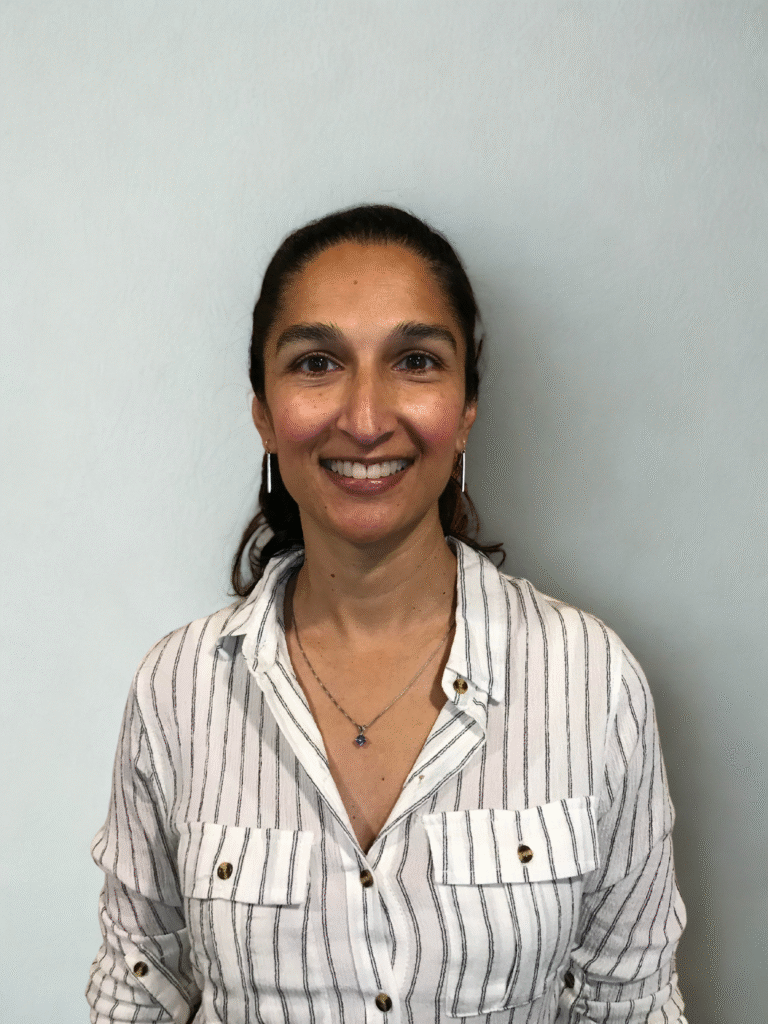Healing Skin from the Inside Out
Aarti Patel, ND
Meet CW: A Journey Through Menopausal Acne
At 55, CW thought her years of battling acne were behind her. But after menopause, her skin flared up worse than ever. Redness, deep cystic bumps, and a damaged skin barrier left her frustrated and confused. She had spent decades using every skincare product imaginable, including prescriptions and drugstore acne washes. Recently, she had also started hormone replacement therapy, including testosterone injections, to manage menopausal symptoms.
CW’s story is more common than you might think, and it shows us that menopausal acne is very real and often misunderstood.
What Is Menopausal Acne?
You may have heard of “adult acne,” but “menopausal acne” is a growing problem for women in their 40s, 50s, and beyond. Despite the belief that acne fades after our teenage years, research shows that around 15% of women over 50 still experience breakouts.
During menopause, levels of estrogen and progesterone, the primary “female” hormones, drop sharply. Meanwhile, testosterone and other androgens can become relatively higher. This hormonal shift can trigger oil production in the skin, clogging pores and causing breakouts.
But it is not just hormones. Life changes, stress, poor sleep from hot flashes, and even emotional struggles with aging and appearance can stress the skin and delay healing.
Why Typical Acne Treatments Can Make Things Worse
At first glance, menopausal acne can look like teenage acne, with whiteheads, blackheads, cysts, and redness mainly around the chin, jawline, and neck. But underneath, the skin is very different.
Teenagers have thick, strong, elastic skin with plenty of collagen. Adults, especially post-menopause, have thinner skin, less natural moisture, and a weaker skin barrier. Harsh treatments that work for teens, like strong retinoids, acids, and benzoyl peroxide, can actually backfire for menopausal skin. They can lead to:
- More dryness and irritation
- Slower healing
- More visible scarring
- A weakened skin barrier, making acne even harder to treat
Many women are unknowingly caught in a cycle of trying stronger products, only to worsen their skin over time.
A Holistic Approach: Healing from the Inside Out
Instead of harsh prescriptions, menopausal acne often needs a gentle, whole-body approach.
Here is what worked for CW.
1. Balancing Hormones Naturally
Since CW’s testosterone levels were high and her estrogen and progesterone levels were imbalanced, a condition called “estrogen dominance,” we gradually discontinued her testosterone injections and introduced natural progesterone cream to restore better hormone balance.
2. Supporting the Skin’s Microbiome and Barrier
We switched her to a gentle skincare routine, including a soft, antioxidant-rich cleanser, light moisturizers with hyaluronic acid, and natural oils like rosehip and sea buckthorn to seal in moisture without clogging pores.
When CW reacted to her first set of antioxidant skincare products, we adjusted her regimen to even gentler options made with olive oil and olive leaf water.
3. Strengthening the Body’s Resilience
CW started a probiotic designed for skin health, rich in good bacteria and herbs that support the gut-skin connection. She also began taking vitamin D3 to boost her immune system and help her skin heal.
Since stress played a major role in her flare-ups, we focused heavily on adrenal support. Adaptogenic herbs like Rhodiola, Ashwagandha, and Holy Basil helped her manage stress. She practiced daily breathing exercises and positive affirmations to calm her mind and her skin.
The Results
Although CW moved out of state before her scheduled follow-up, she sent an update nine months later. Her skin had dramatically improved. She had fewer breakouts, calmer skin, better sleep, less stress, and a more confident outlook.
Her story shows how addressing internal balance, including hormones, stress, and gut health, along with gentle skincare, can truly transform menopausal skin.
Final Thoughts
Menopausal acne is not just “teenage acne all over again.” It is a unique skin challenge that deserves a new, softer strategy.
If you or someone you know is struggling, remember, harsh treatments are not the answer. Healing happens when we nourish the skin and the body, working from the inside out.

Dr. Aarti Patel has practiced women’s health, hormone balancing, naturopathic dermatology, and homeopathy for 15 years. She currently sees patients at Red Fern Health and Mind Body Acne Doc in Vancouver, WA. Using natural therapies and where appropriate BHRT, Dr. Patel treats common health issues that can stem from hormone imbalances for women of all ages. She also practices holistic dermatology for acne and other chronic skin conditions such as eczema and rosacea. Dr. Patel incorporates the mind-body connection into treatment plans for enhanced symptom improvement. She graduated from Bastyr University in 2009 from their 4-year ND program and has authored a few natural health books: Picture It: Homeopathy, The Art of Health, and Acne: Just Another Four-Letter Word.
Follow Dr. Patel on Instagram: @aartipatelnd
Sources:
American Academy of Dermatology. (Accessed March 13, 2025)




